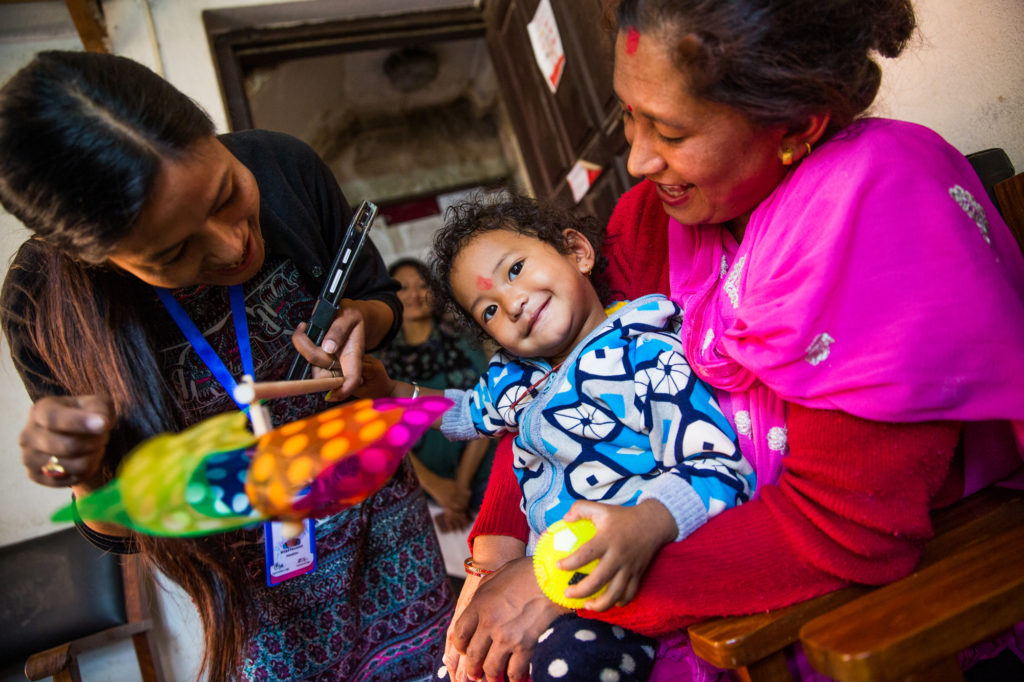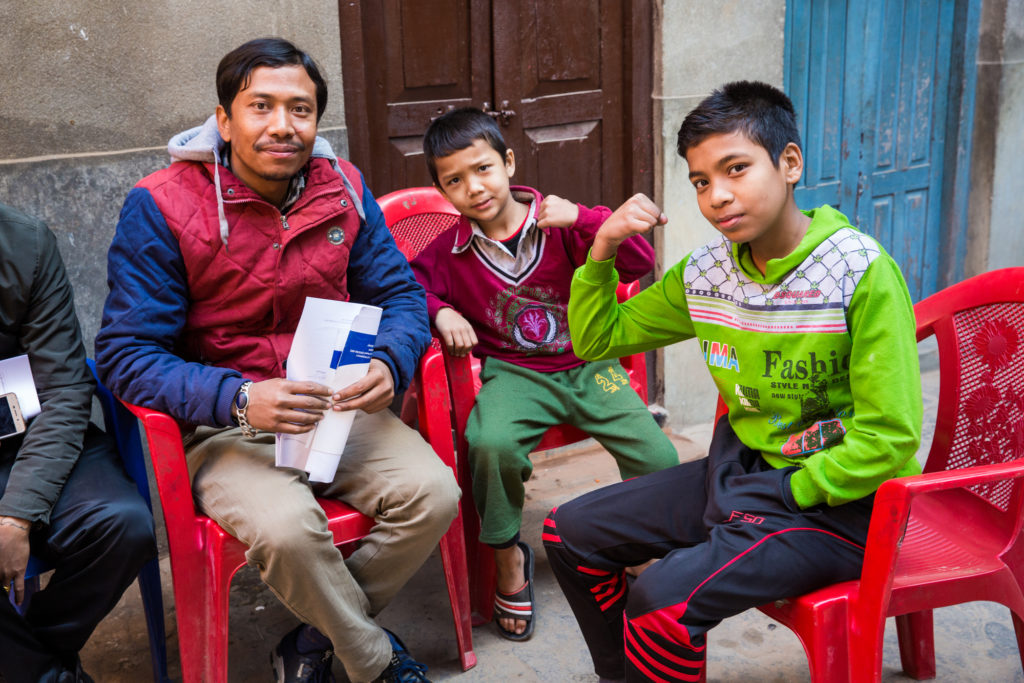A large field study in Nepal has shown that a typhoid conjugate vaccine (TCV) developed in Oxford is over 81 percent effective in tackling the disease.

A single dose of the vaccine was found to be safe and effective in reducing typhoid in children aged 9 months to 16 years in an endemic setting.
Attempts to develop the TCV started with funding from the NIHR Oxford Biomedical Research Centre (BRC), which pump primed the challenge model and then later supported the testing of the vaccine in Oxford.
Caused by the bacterium Salmonella Typhi, typhoid is a major cause of fever in children in low- and middle-income countries and is responsible for nearly 11 million cases and more than 116,000 deaths a year worldwide.
In 2018, the World Health Organization (WHO) recommended the introduction of TCV for infants and children over six months of age in typhoid-endemic countries, and added it to its list of prequalified vaccines.
Although TCV has been shown to protect against the disease in studies involving healthy volunteers in the UK, no efficacy studies in endemic populations had been completed.
Now, the Typhoid Vaccine Acceleration Consortium (TyVAC), which includes researchers from the University of Oxford, the University of Maryland School of Medicine, and PATH has completed a large field study in Nepal and published the interim analysis in the New England Journal of Medicine.
The study involved 20,000 children aged 9 months to 16 years of age, who were randomly given one of two vaccines; half received TCV and half received the Group A meningococcal (MenA) vaccine – the latter acted as the control group.
Blood tests showed that typhoid occurred in seven participants who received TCV and 38 receiving Men A vaccine. The researchers noted that these were preliminary results, and that the study will continue to follow-up the participants for two years.
Andrew Pollard, the Oxford BRC’s Co-theme Lead for Vaccines and Professor of Paediatric Infection and Immunity at te University of Oxford, said: “This is the first study to show that a single dose of TCV is safe, immunogenic and effective, which provides clear evidence that vaccination will help efforts to control this serious disease and is a strong endorsement of the WHO policy for vaccine implementation.”
“The efficacy of these results in an endemic population adds to a growing body of evidence supporting the use of TCV to reduce disease and save lives in populations that lack clean water and improved sanitation,” said Dr Kathleen Neuzil, Director of the Center for Vaccine Development and Global Health at the University of Maryland School of Medicine and director of TyVAC.

These results show the vaccine has the potential to significantly reduce the burden of typhoid in high-risk populations. This is especially timely with the recent spread of extensively drug resistant typhoid, which threatens child health in affected regions.
An outbreak currently affecting Pakistan is the first reported instance of ceftriaxone-resistant typhoid and represents an alarming trend in the spread of drug-resistant typhoid. Not only is the strain resistant to ceftriaxone, the standard treatment in many parts of the world, but it is also resistant to the majority of antibiotics commonly used for typhoid, making it increasingly challenging and costly to treat.
TCVs have the potential to overcome many of the challenges that impeded uptake of earlier vaccines, including longer-lasting protection, fewer doses, and suitability for children under two years of age, allowing for inclusion in routine childhood immunization programmes.
Funding for the study was provided by a grant from the Bill & Melinda Gates Foundation. The investigational vaccine Typbar-TCV is licensed by Bharat Biotech International Limited, Hyderabad, India.